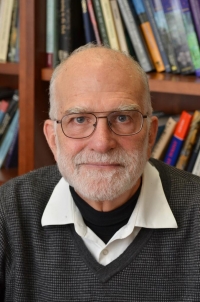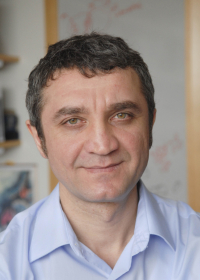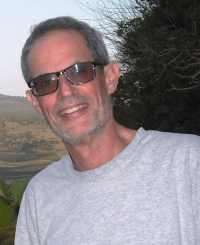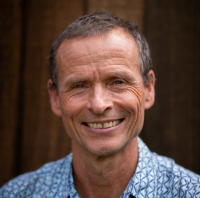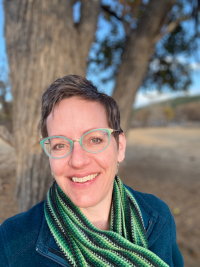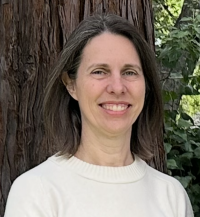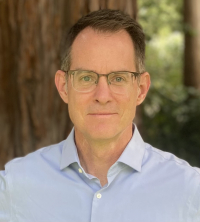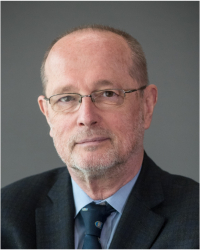Mismatch: Human Origins and Modern Disease
Biographical Sketches: Co-Chairs
Yale University
Stephen Stearns specializes in life history evolution, which links the fields of ecology and evolutionary biology, and in evolutionary medicine. He came to Yale in 2000 from the University of Basel, Switzerland, where he had been professor of zoology since 1983 and held several administrative posts.
His books include "Evolutionary Medicine" (Sinauer, 2015) with Ruslan Medzhitov, "Evolution, an introduction" (Oxford, 2000, 2nd Ed 2005) with Rolf Hoekstra, "Watching, from the Edge of Extinction" (Yale, 1999) with his wife Beverly Peterson Stearns, "The Evolution of Life Histories" (Oxford, 1992), and two edited volumes, "Evolution in health and disease" (Oxford, 1998, 2nd Ed 2008) and "The Evolution of Sex and its Consequences."
A 1967 graduate of Yale College, Stearns earned a M.S. from the University of Wisconsin and a Ph.D. from the University of British Columbia. He was a Miller Fellow at the University of California, Berkeley, before taking up an appointment at Reed College prior to moving to Switzerland.
Prof. Stearns founded and has served as president of both the European Society for Evolutionary Biology and the Tropical Biology Association, was founding editor of the Journal of Evolutionary Biology, and is the founding editor of Evolution, Medicine, and Public Health. He has been a vice president of the Society for the Study of Evolution and is a fellow of the American Association for the Advancement of Science. In 2015, the University of Zurich awarded him an honorary degree.
Yale School of Medicine
Ruslan Medzhitov obtained his undergraduate degree from Tashkent State University in 1990 and his doctoral degree from Moscow State University in 1993. Medzhitov became an assistant professor in 1999 at Yale University School of Medicine in the section of Immunobiology. He is currently the David W. Wallace Professor of Immunobiology at Yale University School of Medicine and an investigator of the Howard Hughes Medical Institute. His research interests include biology of inflammation, innate immunity, mechanisms of allergic reactions, cell signaling and gene regulation. Medzhitov is a member of the National Academy of Sciences, National Academy of Medicine, and European Molecular Biology Organization, and he is a fellow of the American Academy of Microbiology.
Biographical Sketches: Speakers
Loughborough University
Barry Bogin is a Professor Emeritus of Biological Anthropology of the School of Sport, Exercise & Health Sciences, Loughborough University, UK and William E Stirton Professor Emeritus of Anthropology of the University of Michigan-Dearborn. He received his Ph.D. in anthropology from Temple University in 1977. Bogin has expertise in human physical growth and development, nutritional ecology, evolutionary biology, Maya people, and human adaptation. He has authored more than 240 books, articles, book chapters, and popular essays. These include the books Patterns of Human Growth, 3rd edition (Cambridge University Press, 2021).
Further reading:
Barry Bogin, Jared Bragg, Christoper Kuzawa (2014) Humans are not cooperative breeders but practice biocultural reproduction. Annals of Human Biology, 41(4):368-80.
Barry Bogin, Carlos Varea, Michael Hermanussen, Christiane Scheffler (2018) Human life course biology: A Centennial Perspective of scholarship on the human pattern of physical growth and its place in human biocultural evolution. American Journal of Physical Anthropology, 165:834–854.
Buck Institute for Research on Aging
Deena Emera is an evolutionary biologist, writer, and teacher. She earned a bachelor’s degree in Integrative Biology from UC Berkeley, a master’s degree in Physical Anthropology from NYU, and a PhD in Ecology and Evolutionary Biology from Yale. She currently serves as a senior scientist at the Buck Institute’s Center for Healthy Aging in Women, where she is investigating the genetic basis of reproductive longevity in mammals. She is also committed to science communication, writing articles featured in the Boston Globe, SF chronicle, and Oprah Daily, and recently publishing a book. In A Brief History of the Female Body (Sourcebooks, 2023), Deena draws on her expertise as a biologist and experience as a mother of four to explore the mysteries of the female body through an evolutionary lens.
University of Southern California
Caleb Finch is an Emeritus Professor of Gerontology and Biological Sciences at the University of Southern California, with adjunct appointments in the Department of Psychology, Department of Physiology and Department of Neurology. He is also one of USC's 12 University Professors who contribute to multiple fields. Finch's major research interest is the evolution of genomic controls on aging and he has received most of the major awards in biomedical gerontology, including the Robert W. Kleemeier Award of the Gerontological Society of America in 1985, the Sandoz Premier Prize by the International Geriatric Association in 1995, and the Irving Wright Award of AFAR and the Research Award of AGE in 1999. He was founding PI and director of the NIA-funded Alzheimer Disease Research Center in 1984. He is co-founder of Acumen Pharmaceuticals. He has written 600 articles and six books including The Role of Global Air pollution in Aging and disease: Reading Smoke Signals (Academic Press, 2018). In 2018, Finch received a Doctorate Honaris causis, from the French Academy (EPHE). Finch supervises two pre-doctoral fellows and three postdoctoral fellows. His current lab focus is on environmental factors in brain aging, particularly air pollution components.
UC Irvine
Steven A. Frank is Donald Bren Professor and UCI Distinguished Professor in the School of Biological Sciences at the University of California, Irvine. His areas of expertise are evolutionary genetics, host-parasite interactions and social evolution.
Frank received a BS in biology from the University of Michigan, master’s degrees in statistics and zoology from the University of Florida, and a PhD in biology from the University of Michigan.
Frank develops mathematical, computational, and conceptual models to study natural selection and the evolution of organismal design. His work makes testable predictions on topics ranging from microbial life history to sociality to cancer. His study of particular topics leads to syntheses of natural selection, robustness in relation to biological design, and the commonly observed patterns that emerge from information flow and scale. Current projects: (1) Microbial life history: the fundamental forces of biological design, (2) Evolution of regulatory control, and (3) Invariance and the common patterns of nature.
UC San Diego
Pascal Gagneux is CARTA's Executive Co-Director, a Professor of Pathology and Anthropology, and the Department Chair of Anthropology at UC San Diego. He is interested in the evolutionary mechanisms responsible for generating and maintaining primate molecular diversity. The Gagneux laboratory studies cell-surface molecules in closely related primates species. His focus is on glycans, the oligosaccharides attached to glycolipids and glycoproteins of the surfaces of every cell and also secreted into the extra-cellular matrix. Gagneux's laboratory is exploring the roles of molecular diversity in protecting populations from pathogens as well as potential consequences for reproductive compatibility. Dr. Gagneux’s interest is in how glycan evolution is shaped by constraints from endogenous biochemistry and exogenous, pathogen-mediated natural selection, but could also have consequences for sexual selection. Dr. Gagneux has studied the behavioral ecology of wild chimpanzees in the Taï Forest, Ivory Coast, population genetics of West African chimpanzees, and differences in sialic acid biology between humans and great apes with special consideration of their differing pathogen regimes. In 2011, while Associate Director of CARTA, Dr. Gagneux helped to establish a graduate specialization in Anthropogeny at UC San Diego. This wholly unique graduate specialization is offered through eight participating graduate programs in the social and natural sciences at UC San Diego.
Princeton University
Andrea L. Graham is a Professor of Ecology & Evolutionary Biology at Princeton University. She earned an A.B. in Biology and Sculpture from Mount Holyoke College and a Ph.D. in Ecology & Evolutionary Biology from Cornell University. Andrea then completed postdoctoral training in immunology and held research fellowships at the University of Edinburgh before moving to Princeton. Andrea was elected a Fellow of AAAS in 2020 and a Kavli Fellow in 2018. Her research focuses on the causes and consequences of immunological heterogeneity of mammals.
University of Zürich
Martin Häusler is a general physician and paleoanthropologist, and is the head of the Evolutionary Morphology Group at the Institute of Evolutionary Medicine, University of Zürich, Switzerland. For over 30 years he has been interested in the evolutionary background of musculoskeletal problems and of the complex human birth. Currently, he leads two Swiss National Science Foundation projects on "The evolutionary selective pressures shaping the human pelvis: inferences from old bones, wide hips and energetics”, and “Evolutionary and ontogenetic foundations of modern body form”, respectively.
Max Planck Institute for Evolutionary Anthropology
Genevieve Housman leads the Skeletal Genomics Research Group at the Max Planck Institute for Evolutionary Anthropology. Her research focuses on primate functional genomics, complex trait evolution, and skeletal development and maintenance. She has examined patterns of epigenetic variation in primate skeletal tissues and developed primate skeletal cell culture systems to study gene expression differences at population and evolutionary scales. Currently, her team works with cell culture systems, primary skeletal tissues, and genomics methods to improve our understanding of the complex relationship between genotype and phenotype in primates.
Stanford University
Erica Sonnenburg is a senior research scientist in the Department of Microbiology and Immunology at Stanford University School of Medicine. She earned her PhD in medical microbiology and immunology from the University of Wisconsin-Madison. The Sonnenburg Lab is currently focused on understanding basic principles that govern interactions within the intestinal microbiota and between the microbiota and the host. To pursue these aims, the lab applies systems approaches (e.g. functional genomics and metabolomics) to gain mechanistic insight into emergent properties of the host-microbial super-organism.
Sonnenburg's groundbreaking findings have been published in prestigious journals such as Cell, Science, and Nature. Along with her husband and collaborator, Justin, she co-authored the book The Good Gut: Taking Control of Your Weight, Your Mood, and Your Long-Term Health (Penguin Books, 2016), which explores the relationship between gut health and overall well-being. Sonnenburg's work has significantly advanced our understanding of the complex interactions between diet, the microbiome, and human health.
Stanford University
Justin Sonnenburg, PhD, is the Alex and Susie Algard Endowed Professor in the Department of Microbiology and Immunology at the Stanford University School of Medicine, where he studies the gut microbiota in health and disease and co-directs the Center for Human Microbiome Studies. His laboratory at Stanford develops and employs diverse technologies to understand basic principles that govern interactions within the intestinal microbiota and between the microbiota and the host. An ongoing objective of the research program is to devise and implement innovative strategies to prevent and treat disease in humans via the gut microbiota. Justin conducted his Ph.D. in Biomedical Sciences at the University of California, San Diego in the laboratory of Ajit Varki. His postdoctoral work was conducted at Washington University in Saint Louis, Missouri in the laboratory of Jeffrey Gordon. He has received an NIH Director’s New Innovator Award and Pioneer Award, the AGA Research Mentor Award, and co-founded Interface Biosciences. He and his wife and collaborator, Erica, are the authors of the book The Good Gut: Taking Control of Your Weight, Your Mood, and Your Long-Term Health (Penguin Books, 2016).
Yale University
Günter Wagner is a native of Vienna, Austria, and the Alison Richard Professor Emeritus of Ecology and Evolutionary Biology. He is a chemical engineer by training and studied zoology and mathematics at the University of Vienna. In 1991 he joined Yale’s Department of Biology as full professor and in 2010 he started the Yale Systems Biology Institute. After his retirement he resumed teaching and research at the University of Vienna and became a fellow at the Institute of Advance Study at Texas A&M University. His research interests include the evolution of pregnancy, and the evolutionary biology of cancer as well as conceptual aspects of evolutionary biology. GPW is a Mac Arthur Fellow, member of the US National Academy of Sciences, the American Academy of Arts and Sciences, a.o.m..
